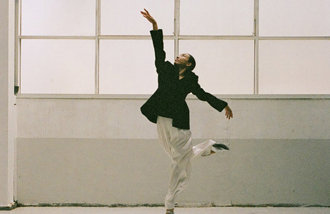Politics for a future of hope
The Korean public showed no particular support for a specific party in the general elections Wednesday. The number of seats won by both the ruling and opposition camps was balanced, an unprecedented phenomenon that reflects the people`s evaluation of domestic politics.
In the 2004 general elections, the then ruling Uri Party won a parliamentary majority despite the impeachment of President Roh Moo-hyun. But the party was negligent in caring for the people in pursuing legislative reforms, including the unsuccessful bid to abolish the National Security Law. Four years later, the Democratic Party, the successor to Uri, won just 81 seats, a dismal outcome that was the result of the party turning its back on the peoples demands. This year, many bet that the main opposition Democratic United Party would win, with some even expecting the party to gain a parliamentary majority. Over the campaign process, however, the opposition party nominated inappropriate candidates while embracing candidate Kim Yong-min, who was under fire due to making controversial comments. The free trade deal with the U.S. that Roh had pushed and the construction of a naval base on Jeju Island were just a few examples of the party flip-flopping on its initial positions. Wednesdays voter turnout also sent a strong warning to the Democratic United Party.
In the 2007 presidential election, the candidate of the Grand National Party (now the ruling Saenuri Party) beat the progressive Democratic Party by a whopping 5.3 million votes and won 153 seats in the general elections the following year. This years general elections did not favor Saenuri, however. Young people face a tough job market while low-income households have it even worse. In Seoul, districts where the middle class are concentrated and those filled with low-income people showed opposite voting results, apparently reflecting the peoples judgment on President Lee Myung-bak.
The progressive camp has shown much better results in the 2008 general elections because of the peoples disappointment over the Lee administration and the power of the pro-opposition alliance. In the Seoul metropolitan area, the Democratic United Party and the United Progressive Party joined forces this year, displaying more power than supporters of acting ruling party chief Park Geun-hye. In the Nakdong River and its vicinity, a region showing a tight race, the power of leading opposition candidate Moon Jae-in was not as big as expected, but hinted at hope for the December presidential election. The public did not support a specific party. Both the ruling and opposition camps must humbly listen to the people`s voice to win in the presidential election. Public sentiment has ordered politics of hope to both sides.
The parliamentary politics of the ruling and opposition parties will be important judgment criteria for the presidential election. The Democratic United Party has to present pragmatism and a vision of the future in shifting away from ideology and the past to stabilize the middle class. People can no longer tolerate excessive pursuit of ideology. If the progressive alliance turns a blind eye to the peoples demands and repeat activities for self-interest, it will merely face harsher criticism. Any party will ultimately suffer if it fails to take public sentiment seriously.
The United Progressive Party won more seats Wednesday than that it had gained in the 2008 general elections, but not enough to form a negotiating body despite teaming up with the main opposition party. Many still criticize the partys pro-North Korea and anti-U.S. stance.
Ahead of the general elections, left-oriented progressive forces formed an alliance embracing different ideologies and policies. Conservative forces were split into the ruling Saenuri Party, the minor Liberty Forward Party and the upstart K Party. The Liberty Forward Party lost its position as the country`s third major party in Wednesday`s elections after failing to shake off its image as a Chungcheong province-based party. The K Party also saw a poor showing. Reorganization and alliance are inevitable in domestic politics. With the presidential election eight months away, progressive parties will accelerate their alliance. Conservative parties should learn from their defeat in the Seoul school superintendent elections and form a new alliance.
The presidential race is set to start with both the ruling and opposition parties holding primaries. Acting ruling party chief Park has gained solid ground in the conservative camp. She will likely compete against Moon Jae-in, former Democratic Party chief Sohn Hak-kyu and South Gyeongsang Province Gov. Kim Doo-kwan. Whether former IT guru and rising political star Ahn Cheol-soo will enter the political fray is also of high interest. President Lee should take good care of national affairs despite all the forthcoming noise in politics.







